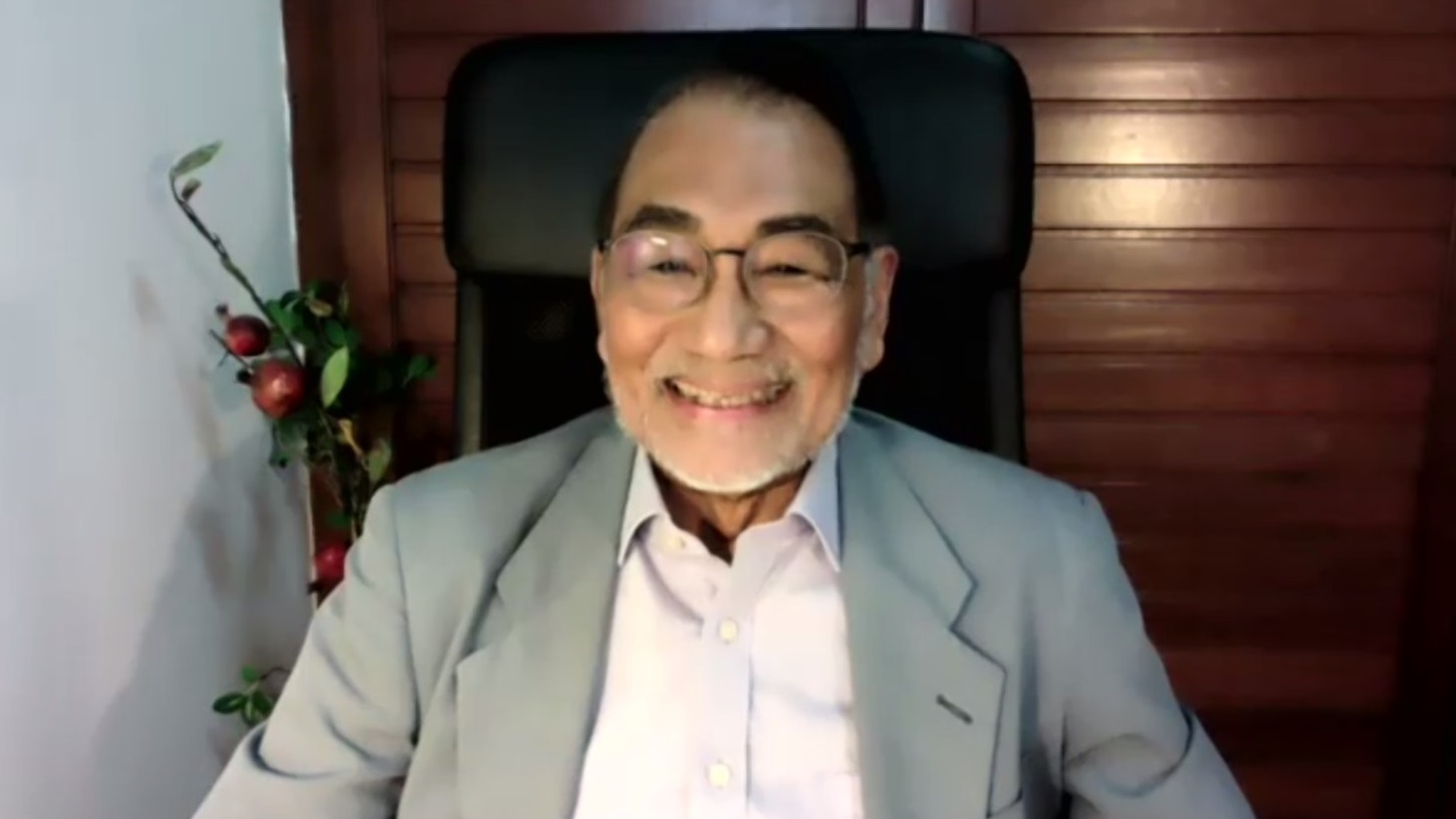
UTAR Tun Tan Cheng Lock Centre for Social and Policy Studies (TCLC), Centre for International Studies (CIS), and Centre for Corporate and Community Development (CCCD) jointly organised a webinar titled “Malaysia’s National Role Conceptions and Transitions of Foreign Policy from the Tunku to Mahathir” on 4 December 2020.

Prof Johan Saravanamuttu during the webinar
Invited to deliver the webinar was Prof Johan Saravanamuttu.
Prof Johan is
Professor Emeritus of Universiti Sains Malaysia (USM), Adjunct
Professor at Asia-Europe Institute, University of Malaya and Adjunct Senior
Fellow, RSIS, Nanyang Technological University, Singapore. He has published
extensively on Malaysia, its foreign policy, the middle class, general
elections, the New Economic Policy and political Islam.
The highlight in the webinar was about the national role conceptions (NRCs)
during the Tunku’s period of 1957 to 1968, and the first and second Mahathir
tenures of 1981-2003 and 2018-2020. In his talk, Prof Johan
mentioned that Malaysia’s foreign policy has seen major shifts occurring in
the transition of foreign policy in tandem with changing national role
conceptions. He said, “Malaysian foreign policy articulated within the
constraints posed by the global and regional environment and that of a
highly politicised, often divided domestic landscape. In the Tunku era,
Malaysia’s relations with major powers and regional countries have shown a
stable, neutral and non-aligned stance and it emerged as a ‘regional neutral
strategist’ under the premiership of Tun Razak.”
He mentioned that the revisions in Malaysia’s NRCs under Mahathir as a
‘global champion of the South’, exemplar of ‘Looking East’ and ‘champion of
moderate Islam’ were not all just outcomes of elite preferences but
reflected political agendas of elites and political agents within the
domestic political “game”. Domestic contestations over NRCs and foreign
policy have caused the re-definition and even the abandonment of policy
directions which were not consonant with the imperatives of the domestic
political game.
He explained NRCs with the definition given by Kalevi Jaakko Holsti,
“National role conceptions can be taken on the dependent variables side of
foreign policy and, on the independent variables side, as the national
leanings that would drive certain state policies. K J Holsti defines NRCs as
the policymakers’ definitions of the general kinds of decisions,
commitments, rules and actions suitable to their state in the international
or regional systems.”
He then presented a schema for analysis of NRCs in foreign policy, and
several studies of NRC and foreign policy. “There are very few studies in
term of NRCs, particularly for Malaysia. There is only one study of
Malaysian NRCs, by David Han, focused on Malaysia-Singapore relations,” he
said. He then further explained NRCs under the period of Tunku and new NRCs
under Mahathir. After giving a conclusion by Prof Johan, the talk ended with
Q&A session.
Wholly owned by UTAR Education Foundation Co. No. 578227-M LEGAL STATEMENT TERM OF USAGE PRIVACY NOTICE